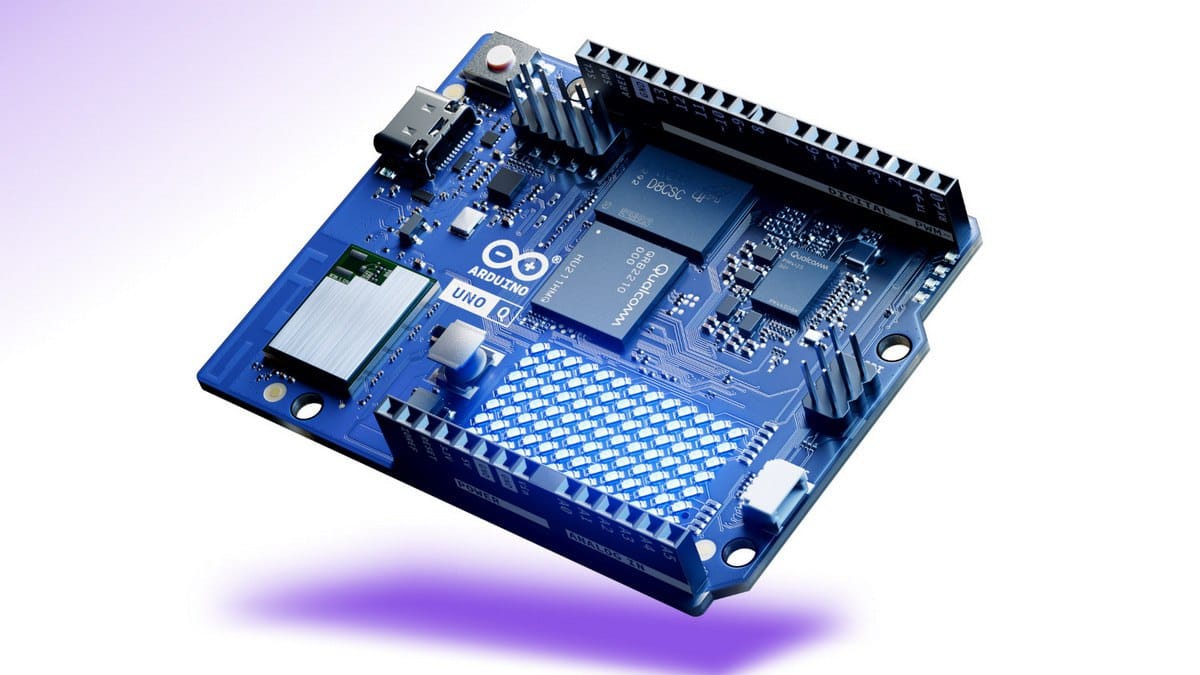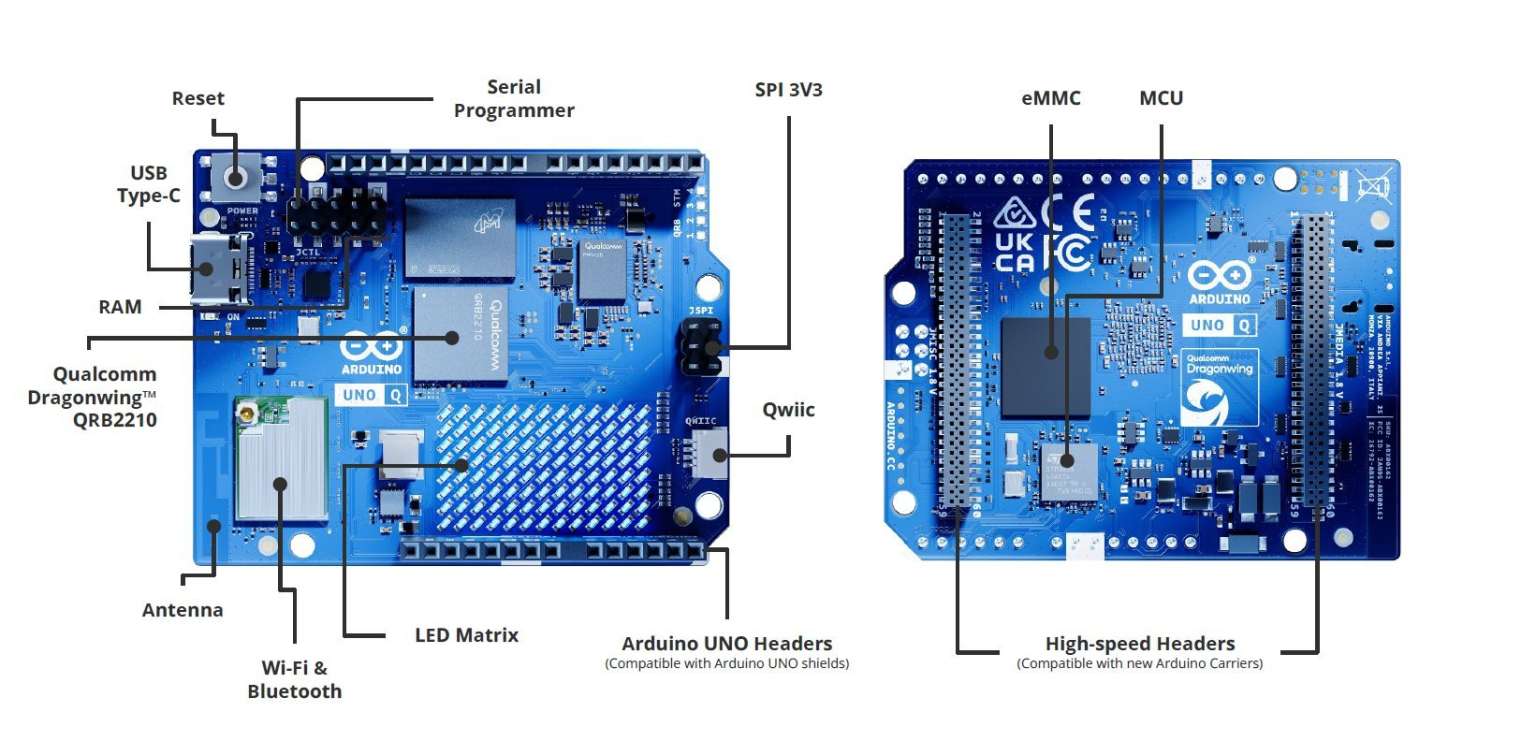Qualcomm Is Buying Arduino and Announces the UNO Q Single-Board Computer

Qualcomm, the U.S. semiconductor giant known for its Snapdragon chips, has announced the acquisition of Arduino, the Italian company famous for its open-source hardware and software ecosystem.
In its statement, Qualcomm emphasized that Arduino will retain its brand, mission, and open-source philosophy, as well as its commitment to supporting chips from multiple manufacturers.
“Entering a new chapter as part of the Qualcomm family, Arduino will retain its independent brand, tools, and mission, while continuing to support a wide range of microcontrollers and microprocessors from various semiconductor manufacturers,” the company said. “Following this acquisition, Arduino’s community of more than 33 million active users will gain access to the powerful technology stack of Qualcomm Technologies and its global reach. Supported by Qualcomm’s advanced technologies and extensive partner ecosystem, entrepreneurs, businesses, professionals, students, educators, and enthusiasts will be able to rapidly prototype and test new solutions with a transparent path from prototype to commercial product.”
Financial terms of the deal were not disclosed, and the transaction is still subject to regulatory approval and other standard closing conditions.
Concerns from the Open-Source Community
Although Qualcomm insists Arduino will continue to operate independently, user concerns are growing.
Historically, when large corporations acquire open-source projects, community members fear ecosystem restrictions and reduced support for third-party hardware.
Some Arduino users worry that this move could shift the company’s focus toward Qualcomm’s enterprise clients, potentially sidelining the maker and education communities that helped define Arduino’s identity.
Introducing the UNO Q: A New Era of Arduino
The first result of the partnership is the Arduino UNO Q, a single-board computer that Arduino describes as its most powerful board ever. The device combines an STM32U585 microcontroller (MCU) with a Qualcomm Dragonwing QRB2210 system-on-chip (SoC).

Developers describe the UNO Q as having a “dual brain”:
- A CPU capable of running standard Debian Linux (a pointed comparison to the Debian-based Raspberry Pi OS).
- A microcontroller dedicated to real-time tasks — combining high-performance computing with precise control.
The QRB2210 features a quad-core Arm Cortex-A53 processor, an Adreno 702 GPU, and support for Bluetooth 5.1, Wi-Fi, eMMC storage, and classic Arduino connectors for backward compatibility with existing UNO expansion boards.
New connectors on the back of the board take advantage of the Dragonwing SoC’s expanded capabilities.
Like a Raspberry Pi, the UNO Q can be used as a standalone device with a keyboard, mouse, and monitor, or connected to a PC running a development environment.
Two versions will be available:
- 2 GB RAM / 16 GB eMMC storage — priced at $44
- 4 GB RAM / 32 GB eMMC storage — priced at $59, launching next month
App Lab and AI Integration
Alongside the UNO Q, Arduino introduced App Lab, a new development environment designed to unify real-time coding, Linux application development, and, with Qualcomm’s help, AI integration.
App Lab is built on the Edge Impulse platform — an AI-focused toolset acquired by Qualcomm earlier this year — and supports importing pre-trained models from the Qualcomm AI Hub.

The goal is to make embedded AI development more intuitive, scalable, and accessible to the broader Arduino community.
“Joining forces with Qualcomm Technologies will allow us to accelerate our mission to make technology accessible and innovative,” said Arduino CEO Fabio Violante. “The launch of the UNO Q is just the beginning. We want to provide the global community with powerful tools that make AI development intuitive, scalable, and open to all.”
Outlook
If approved, the acquisition could mark a major shift in the open hardware landscape, blending Arduino’s grassroots developer community with Qualcomm’s deep R&D capabilities.
The move signals Qualcomm’s intent to strengthen its position in the edge computing and AI-on-device market — and for Arduino, it could be both an opportunity and a test of whether open-source ideals can coexist with corporate scale.


